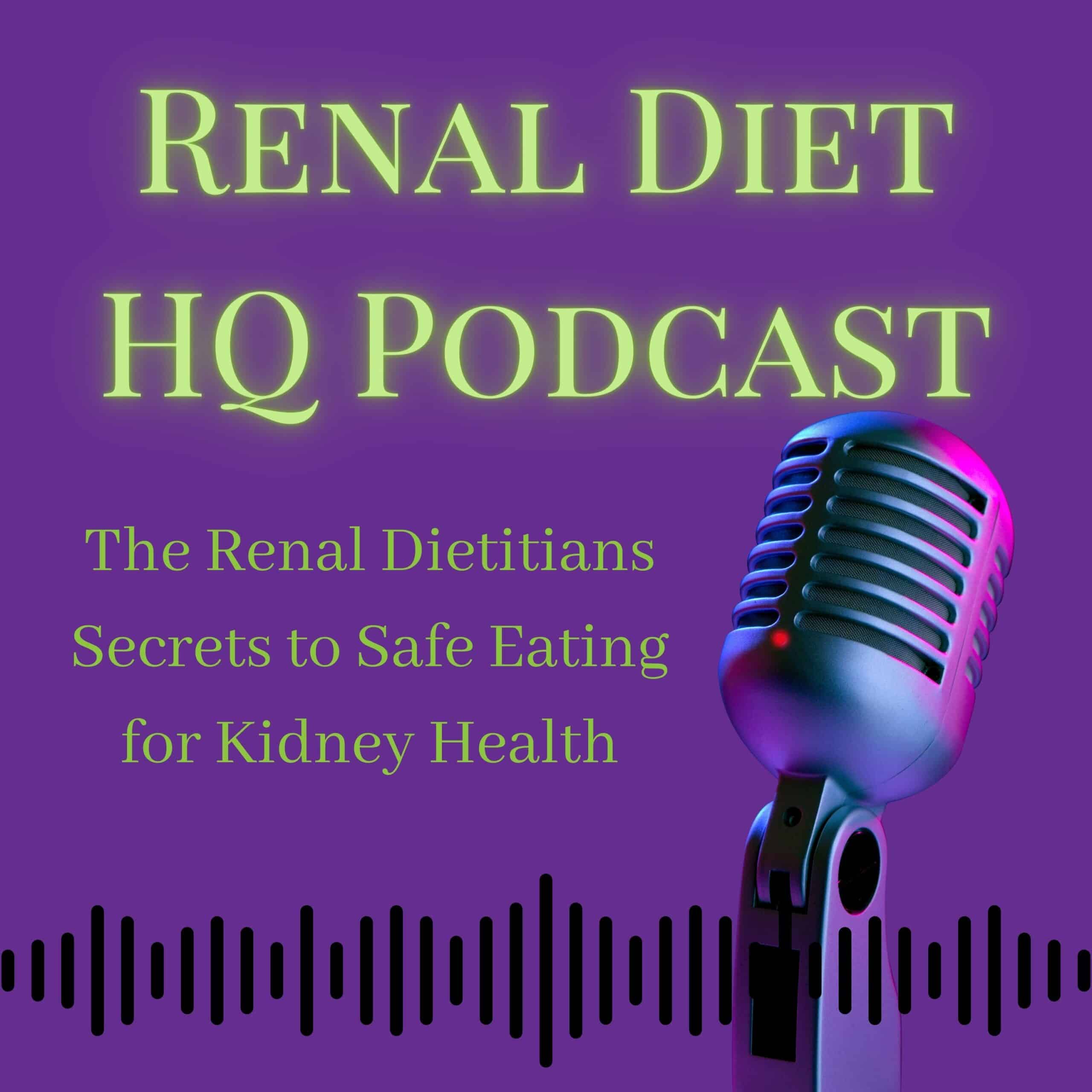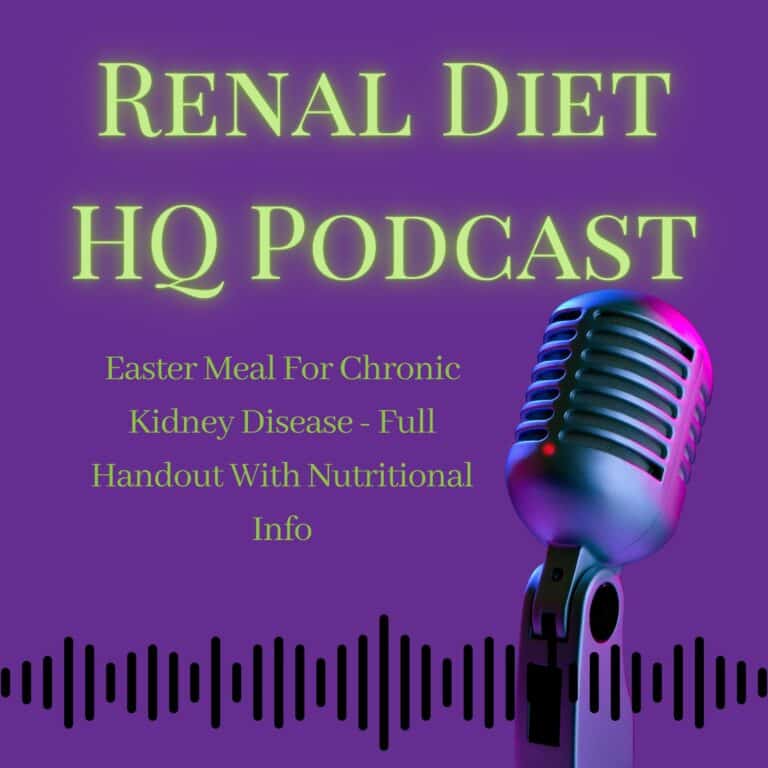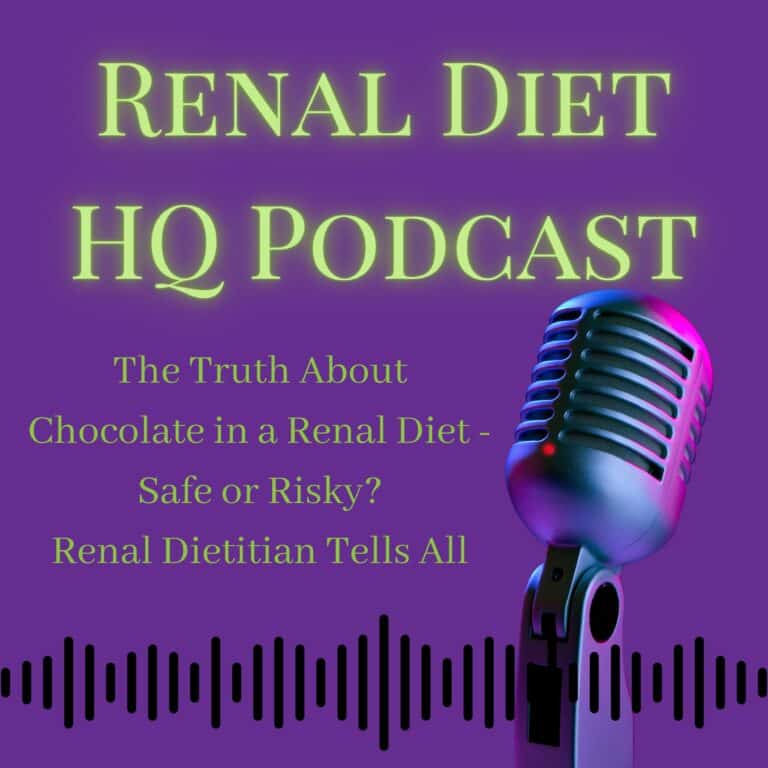The Renal Dietitians Secrets to Safe Eating for Kidney Health- Podcast
Podcast: Play in new window | Download

For those grappling with kidney disease, ensuring food safety becomes a crucial aspect of their daily lives. Beyond adhering to prescribed renal diet plans, individuals must also be vigilant about proper food handling to mitigate the risk of foodborne diseases. In this blog post, we'll delve into practical tips and guidelines to help individuals with kidney disorders safeguard their meals and enjoy a healthier lifestyle.
For More Recipes and Ideas --->> Get Your Free Meals and Recipes That Are Perfect for Pre-Dialysis Diets, Pre-Dialysis with Diabetes, or Dialysis Diets.
About the Author
Meet Mathea Ford, a registered dietitian nutritionist specializing in chronic kidney disease and the owner of Renal Diet HQ. With a passion for assisting individuals in improving their health through simple yet delicious dietary changes, Matthia is dedicated to transforming eating habits, boosting overall well-being, and ensuring every bite is a joy. Join her on this incredible journey to better health together.
Understanding the Risks for Kidney Patients
People living with kidney failure face elevated risks for infections due to compromised immune systems, high blood pressure, and potential electrolyte imbalances. Contaminants such as bacteria, viruses, parasites, and toxins can be present in food, making it crucial for individuals with kidney disease to be vigilant about food safety.
Food Safety Practices for Individuals with Kidney Disease
To prevent foodborne illnesses, safe food storage practices, including proper refrigeration and freezing, are paramount. This section emphasizes the significance of good hygiene, such as thorough handwashing and using separate utensils, to reduce the risk of contamination. Cooking food to safe temperatures is highlighted as a critical step in ensuring food safety.
Eating Out with Kidney Disease
When dining out, individuals with kidney disease should inform servers of allergies or dietary restrictions to prevent allergic reactions. Tips for safe eating out, such as using separate utensils and cutting boards, are provided. The importance of considering cooking at home for better control over meals is also emphasized.
Meal Prepping and Storage for Kidney Health
Proper food storage and handling during meal prepping, especially for those on a renal diet, are discussed. Tips include the use of dissolvable labels for tracking storage details and adhering to safety guidelines for leftovers. The effectiveness of canning and jarring pantry staples for extended shelf life is mentioned.
Food Preparation and Cooking for Kidney-Friendly Diets
This section emphasizes the importance of cooking foods thoroughly and safely for kidney-friendly diets. It discusses healthy alternatives, focusing on low sodium and low potassium options, and encourages the use of labels and nutritional information when eating out or ordering takeout.
Cleaning and Sanitizing Surfaces
The importance of using safe cleaning products and reading labels carefully is stressed. Various methods for cleaning kitchen tools and equipment are discussed, emphasizing the need for sanitizing surfaces to prevent contamination.
Proper Storage and Handling of Refrigerated and Frozen Foods
Ensuring food is stored at safe temperatures to preserve quality and nutrients is crucial. Proper refrigeration and freezing techniques, including labeling and checking for freezer burn, are explained. Safe defrosting techniques to maintain food safety are highlighted.
Choosing Safe and Suitable Foods for a Renal Diet
The significance of checking labels for renal diet suitability, considering expiration dates, and careful food purchasing is discussed. Tips for budgeting, including buying in bulk and taking advantage of sales, are provided.
Ensuring Food Safety During Reheating
This section stresses the importance of reheating foods at safe temperatures to avoid bacterial contamination. The use of food thermometers and proper reheating techniques for leftovers are discussed, emphasizing careful monitoring during the reheating process.
Ensuring food safety for individuals with kidney disease involves adopting simple habits for a healthier lifestyle. By following the outlined guidelines and incorporating them into daily routines, individuals can protect themselves from foodborne illnesses and enjoy a safe and delicious renal diet. Subscribe to Renal Diet HQ for more insightful content on navigating the challenges of kidney disease and embracing a healthier life.







